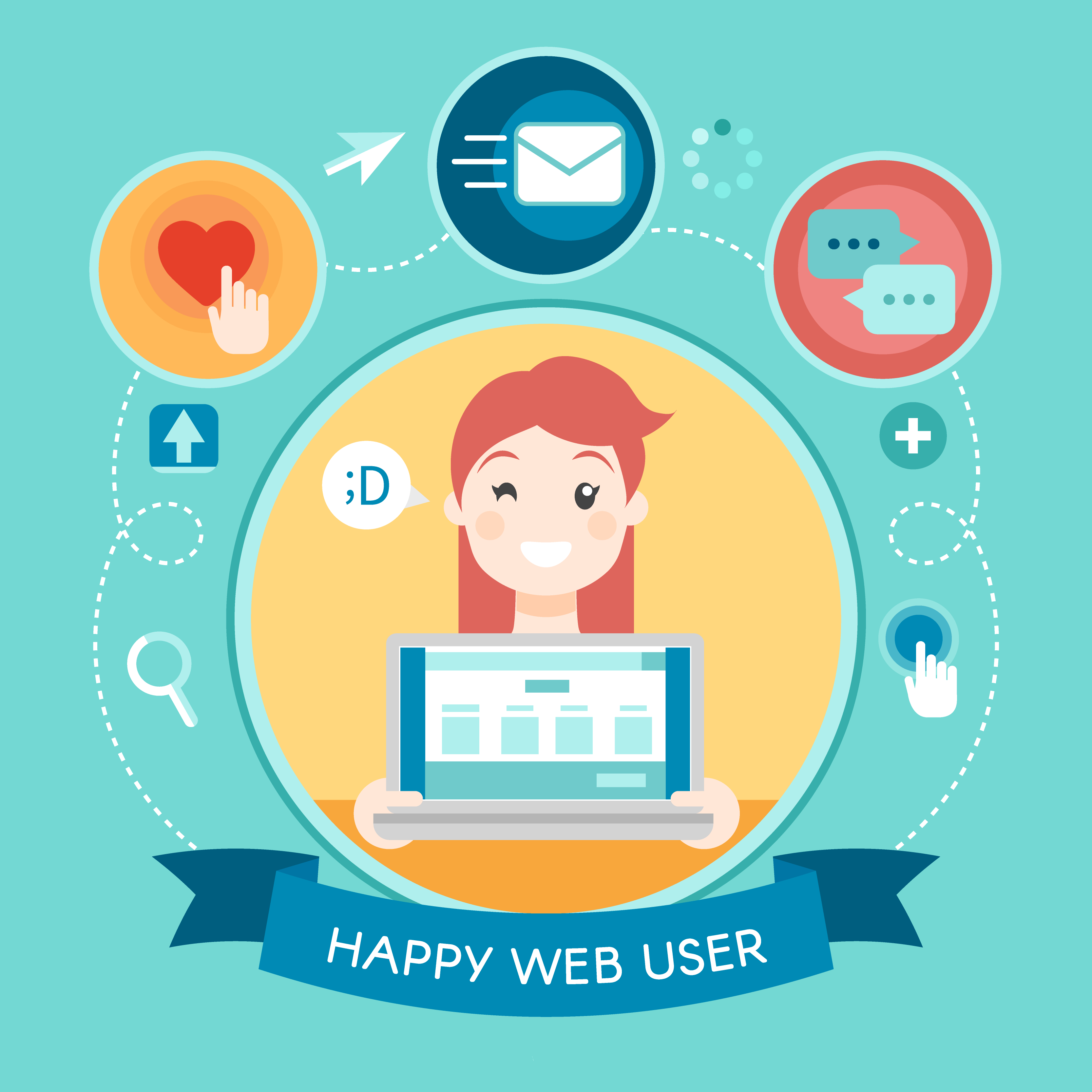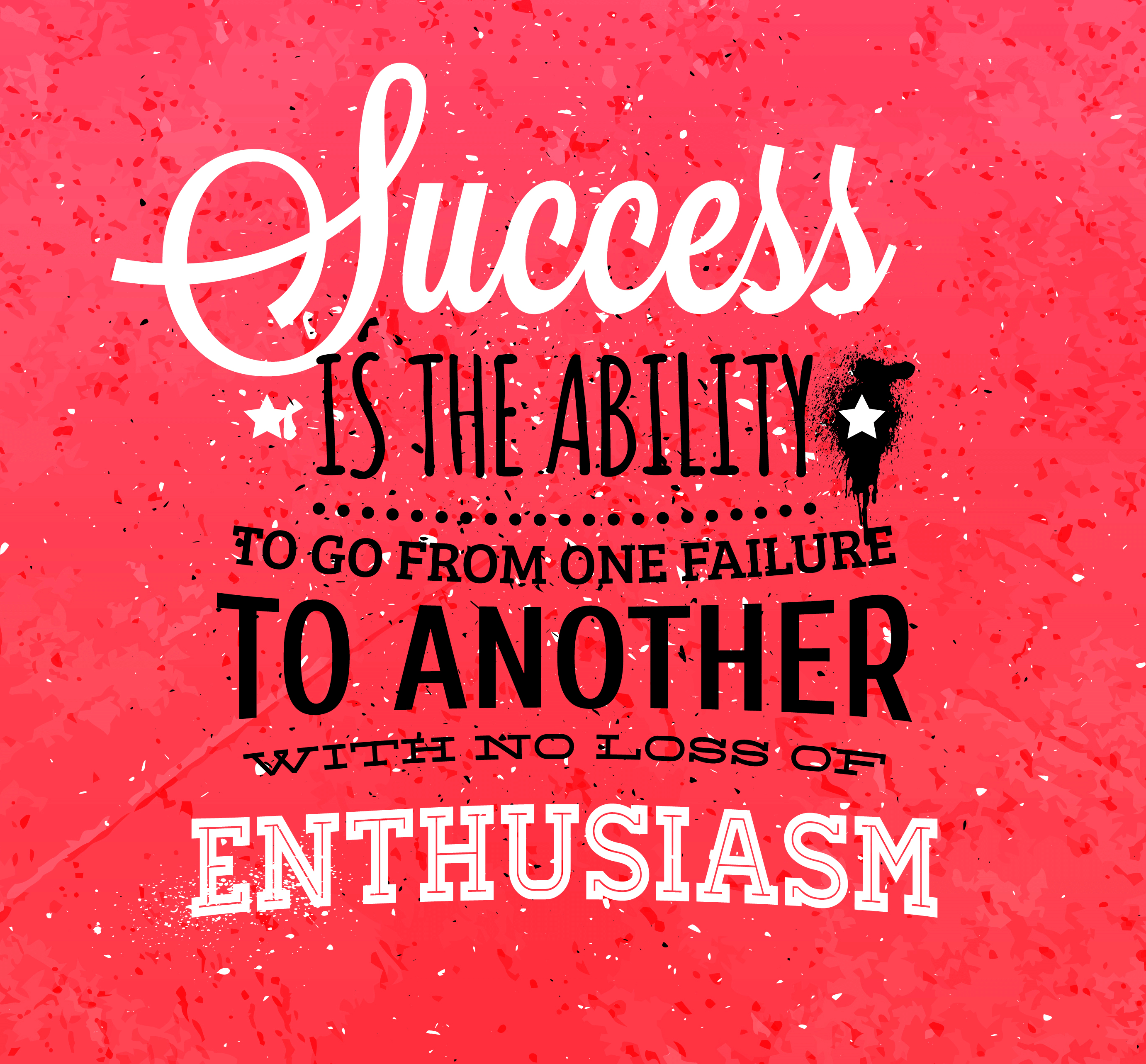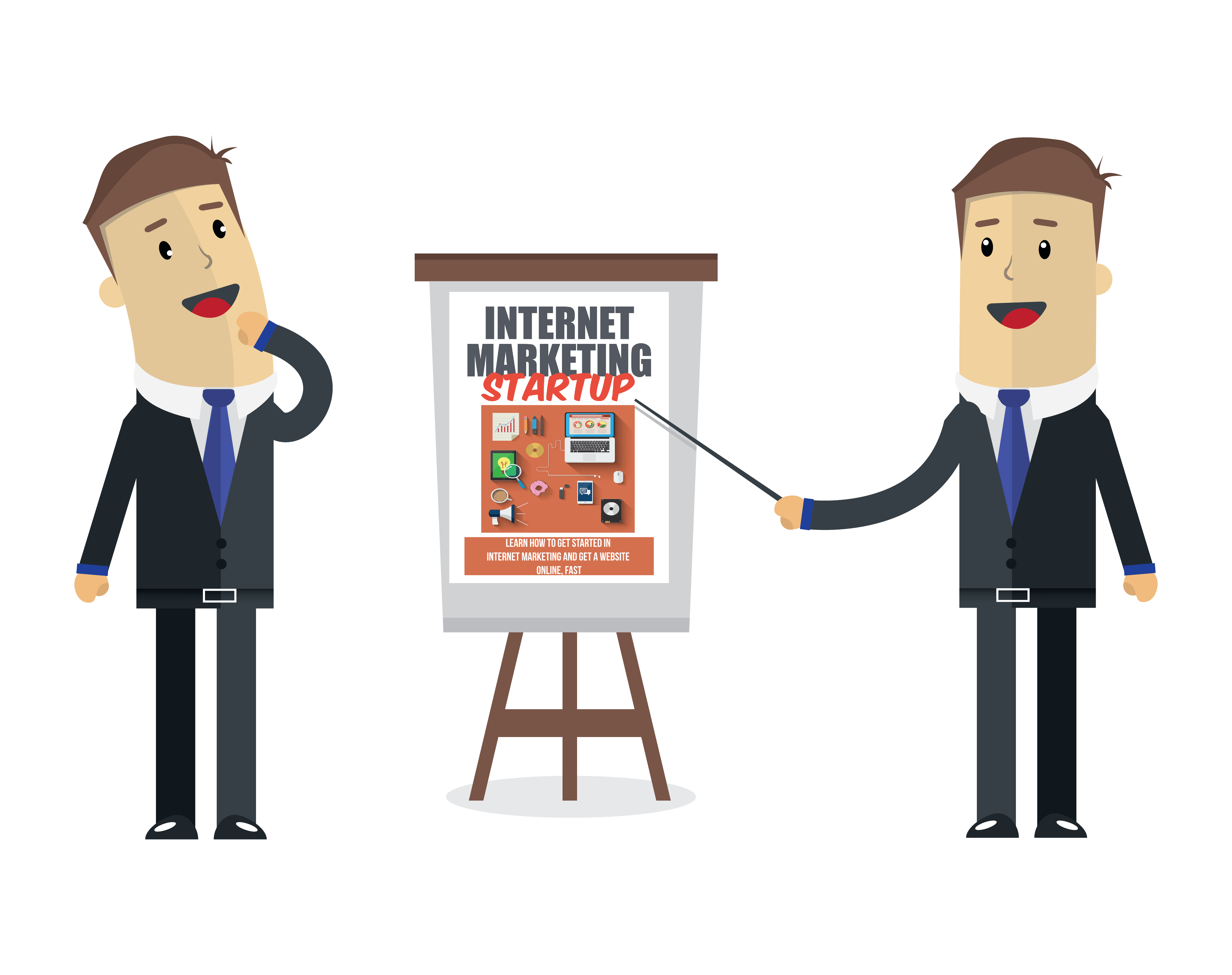IMchecklist
Starting An Online Business At Home (The Two Things You Must Have Before You Do Anything)
Starting An Online Business At Home (The Two Things You Must Have Before You Do Anything)

Did you know you can outsource pretty much everything you need to start an online business? If you don’t like doing it, don’t fret; just pay someone else to do it for you and this frees you up to work on your business and not in your business.
But there are a couple of things that can’t be outsourced and need to come from you and they are crucial to your success or failure. So, what are those 2 things you may be asking?
Well the first one are your ideas.
Your BIG Idea
Your big idea has got to be yours and it should underpin your entire business and should be incorporated throughout your sales processes.
So let’s say you come to me, wanting to start an online business. You’re a blank slate, in that you don’t have a clue where to start or what to do.
You may think that you are at a disadvantage but in fact this is not the case, because someone who is a blank slate actually holds a tremendous advantage over someone who already thinks they know it all, when in fact they don’t really have a clue. A little knowledge can be dangerous!
So you come to me and ask what you should do. And I stuff a pad of paper and a pen in your hand, and I tell you to go somewhere quiet and think because you’re going to brainstorm like you’ve never brainstormed before. You’re going to write down every idea you get. Good ones, bad ones, stupid ones – even the ones you KNOW for a FACT you cannot possibly pull off.
You’re going to write them all down.
“I want to teach a cooking course to people who currently can’t boil water.”
“I want to build an app that tells people where the vacant parking spots are in New York City.”
“I want to build a community gardening site for people who live in southern Florida.”
And so forth. Be vague or get specific. The key is to just brainstorm your heart out and get all these ideas out of your head. Speaking of which, watch for those items that feel especially near and dear to you, and put a little star by those. And then keep writing.
By generating your own business model without worrying about what anyone else is doing, you’re freeing yourself up from comparisons, crappy advice and self-doubts. Let your imagination run wild and remember that your business model can be anything you can imagine.
Naturally once you’ve narrowed your choices down to a handful, you’re going to do some research to make sure there is indeed a market for what you’re proposing. But I’m going to discourage you from spending a lot of time looking at any potential competitors. Ignore what they’re marketing, how they’re marketing it, how they’re advertising and so forth.
And this leads us into the second thing that you must have and that is overcoming fear. Only you can do that.
Fearlessness

Because what tends to happen when people over analyse is that they learn to fear their own idea.
“This is already being done, so I’m too late!”
“This company is already doing a good job of covering this market, there’s no room for me.”
“Their idea is different from mine, so theirs must be the right one and mine must be wrong.”
And so forth. So, by not over analysing things you’re eliminating one type of fear that plagues all new marketers. But you’re not done yet as there is a second fear you’ll need to overcome – the one that creeps up on you when your friends say, “What, YOU’RE going to start a business? HAHAHA!”
Or maybe your friends are supportive, but you lack confidence. “What if people hate my product?”
Yup. There’s a real heart stopper. And you cannot outsource overcoming those fears. So how do you deal with them?
For me, I just acknowledge them rather than fight them. Yes, I’m afraid. No, I’m not going to let it stop me. So Mr. Fear, you go sit in that chair over there while I work. And if you get bored, feel free to fly out the window.
Believe it or not, this attitude works. When you stop letting fear take a hold of you, when you stop feeling like you’re trapped in its icy grip, when you just acknowledge it and do the work anyway, then fear tends to get real quiet. It takes a seat and watches for an opening. And if you don’t give it one, eventually it just leaves the way it came.
Ignore what’s going on around you. Put blinders on, manage your fear and above all else, stick to your idea.
And remember these acronyms for F.E.A.R.
False Evidence Appearing Real and Face Everything And Rise
And in the immortal words of Susan Jeffers Feel The Fear And Do It Anyway. This is a great book by the way and you really should check it out here for US readers or here for UK readers.
If you are ready to get started on your online business you may feel a little confused with all the technical jargon around setting up domains, hosting etc. Well, I have a report which can help with that so don’t let this stop you.

11 Things You Should Know About Internet Marketing
11 Things You Should Know About Internet Marketing
Using the internet to promote goods and services for your business is generally known as internet marketing or online marketing. This process may also be referred to as electronic marketing, e-marketing and e-commerce.
Internet marketers use a wide variety of strategies to make their business visible to their target audience, or niche. These strategies include SEO (search engine optimization), blogging, direct marketing, email marketing, content marketing, social media marketing and the list goes on.
There are many advantages and disadvantages that come with internet marketing as a business model and we are going to be looking at a few in this article.
Advantages

There are many advantages that come with having an online internet marketing business and these include cost, reach, technology, 24/7 availability of products/services. These are primarily customer advantages, but the business benefits include reliable data collection, quick competitive analysis and personalisation.
1. Cost

Compared to traditional brick and mortar or offline marketing, it is much cheaper to promote your business online using the internet and this is especially true about advertising. In fact, there are many ways to promote your business online for FREE! Unlike traditional ad media such as the TV and newspapers, your online ad spend will be a fraction of what it costs to promote a business traditionally. As well as being cost-effective, internet marketing is also time-saving because it takes less time to find prospects, turn them into buyers (hopefully) and complete their transactions.
As there are little to no overhead costs, the returns on investment (ROI) that comes with online marketing far exceed that of traditional marketing. If you have a good target market and laser focused marketing strategy, you will get higher and (sometimes) instant returns on the money you spend when placing online ads. And don’t forget that many of these techniques are completely free and will still yield good returns.
Staffing costs will also be lower when compared to a more traditional offline business. Hiring costs for virtual assistants is far less than on the high street and you can outsource all over the world!
Cash flow is also often improved. As consumers pay for the product before it is dispatched, this helps to improve the cash flow for the company, making sure that the business can pay any suppliers and other costs (such as online marketing tools) on time.
2. Reach

There’s also the advantage of being able to get in front of a global audience with your online business (unlike a traditional business that is normally restricted within a specific boundary of operation). This opens up so many new opportunities and even allows you to compete on a global scale, even with the big guys! If you already have a traditional business, it is a good idea to move some of your operations online, so that even if your offline office is closed for business, customers and prospects will still be able to visit your website and place their orders.
3. Technology

The amazing technology that powers the web, and also your online business is one of the major benefits of hosting your business online. And the technologies are only going to get better and more sophisticated as time goes by. With reliable auto-responder services, you don’t have to worry about your emails being delivered (email marketing) to your target audience in a timely manner; delivery is almost instant! And you can even schedule emails to go out on a daily/weekly basis on autopilot! On the other hand, the traditional direct mailing system can take days, or even weeks to deliver mail to their destinations, especially when you are mailing globally.
4. Availability

There is no time restriction on when a consumer can shop online because the internet is always available. Many online sales now start at midnight on a particular day encouraging customers to shop all hours of the day. For example, many retailers will start post-Christmas sales on the 26th of December at 00.00, but many consumers are starting to shop even on Christmas Day itself!
5. Data collection

Every time a customer interacts with your business, that interaction is captured. The business can then use this data in a number of ways. To start with, information can be analysed to find out which are the most popular products/services being sold. Secondly the data can be used to assist in segmenting their customers, profiling them and sending customers promotional material based on past buying habits. This can even go a step further with potential customers, as you can now retarget them with ads based upon their browsing history, so they see relevant, targeted ads tempting them back to buy.
There has been much controversy over the amount of information that is being collected online by various companies. This is of particular importance when it comes to social networking sites and there has been many a debate as to whether customers should be able to opt out of that information being shared to third party users.
6. Competitive analysis

Any business owner knows that it is important to analyse your competitors. The internet allows businesses to analyse their competitors’ online strategy quickly and easily. You can keep an eye on what new products they are releasing, react to any price changes, or use the internet to discover all sorts of secondary data on your competition. The internet allows you to react quickly to any change in a competitor’s strategy, and enables you to try to provide a service that at least matches, but preferably beat your competitors. Just keep in mind that they can do this too!
Browsing competitor websites can also provide a wealth of background information about the business such as:
- Accounts and trading activity
- Company objectives, culture and ethos
- The size of the company
- Where they are located physically (if appropriate), number and type of sites that the business operates from
The internet often has information about your competitors (and you) which is prepared by independent organisations which are not connected to competitors so the data should be reliable.
7. Personalisation

When customers log into their accounts, a business can make their web experience almost unique. Using a membership portal which requires them to login is definitely a preferred option here as there are so many benefits, from offering special offers to that particular customer, offering an add-on to their recent purchase, (much like Amazon does), or by allowing the customer to personalise their own products, like Nike does with their trainers. Personalisation allows the business to form stronger bonds online with customers who they don’t have any physical interaction with, and this helps to form long term online relationships thus ensuring customers come back regularly.
Disadvantages

Not everything is rosy! There are always going to be some disadvantages to any type of business and internet/online marketing is no different. Some of these include loneliness, motivation, no face-to-face contact, and once again technology!
1. Loneliness

Do not underestimate this! Many people dream about working from home and living the “laptop lifestyle” but it can be pretty lonely working on your own, especially in the beginning when you may see little reward for your efforts. Try to involve those closest to you such as a spouse, family and friends.
2. Motivation

This is intrinsically linked to point 1. If you are lonely, not seeing much reward for your efforts, and have negative people surrounding you (we all do), it can be very difficult to stay motivated. This is a trial which pretty much ALL online entrepreneurs MUST overcome to become successful, but this is a very real danger and can have a serious impact on your relationships, but you need to hang in there because the rewards are well worth it!
3. Face-to-face contact with customers

This is a real downside to online marketing; the lack of a tangible physical connection. Limited face to face contact really is one of the major drawbacks of internet marketing because nothing beats having a potential customer in front of you. Businesses that are solely based online aren’t usually able to build strong personal rapport with their customers. As a result, there is the possibility that they may lose some of their customers to more traditional competitors who use strong customer service tactics. But the good thing is that more and more people are turning their buying power online for the convenience it provides so all is not lost!
4. Technology(!)

Ah, so you have probably noticed that this can be an advantage AND a disadvantage! The virtual nature of internet marketing increases marketing complexity. When you are just starting out it can quickly become confusing when trying to choose which online marketing techniques will become profitable.
Customers also face complexities in the aspects of shopping online and may have security concerns leading the un-informed consumers to stick to conventional buying rather than enduring such online purchase complexities.
And there are such a myriad of tools to accomplish a particular task that it can quickly become overwhelming. Just look at the number of auto-responder services, domain name providers, hosting providers, page builders and it can quickly lead to despair. In fact, this is probably the number one reason why many budding entrepreneurs give up before they even really get started which is a real shame.
Don’t be one of those people; if you want to learn more about the technical basics of having an online business, I have a fantastic free report that you can download here.
So, there you have it. 11 things you should know about internet marketing broken into the advantages and potential disadvantages of internet marketing and running an online business. I’m sure you will agree that the advantages definitely outweigh any potential pitfalls. So, what are you waiting for? Go out there and claim your slice of the online pie, and if you want to remove the confusion around the technical aspect of running an online business, then download the Internet Marketing Startup Report now.
Starting Internet Marketing? You Are Not Alone
Starting Internet Marketing? You Are Not Alone
Internet marketing is something a lot of people are interested in getting started in, but their eyes glaze over once they hear terms like FTP, domain names, hosting, script installation… all those terms that all internet marketers have to learn eventually, but seem so daunting to a beginner.
This post is going to cover some of the most important things you’ll need to know as a newbie to internet marketing.
We’re going to cover topics such as domain names, hosting, cPanel and FTP and in future posts we will cover much more. We’ll cover some of the technical basics that you need to get started in internet marketing as it is these technical things that stop so many people from even starting!
Domain Name Registration and Management
The first thing you’ll likely need to know is how to get a domain name. Your domain name is your website’s street address, basically. It tells web browsers how to find your website.
A domain name looks like this >> your-domain.com
And your web address would look like this >> http://www.your-domain.com
While you could get away with using a web address such as:
http://www.wordpress.com/your-business-name
The fact is there are some problems with this.
First of all, it doesn’t look as professional as using your own domain. If you’re hosting on a free platform like WordPress or Blogger, you may find people aren’t as likely to trust you, especially if you’re selling something.
Another potential problem is that free hosts have a variety of different rules you must follow. Some of them don’t allow you to use advertisements on your site. Others don’t allow you to use plugins. These rules and limitations can be extremely restrictive and hamper your marketing efforts greatly.
Finally, if you don’t have your own domain on your own hosting, you will be extremely limited with what you can accomplish with your website itself. Running WordPress on your own domain will allow you to use custom themes and plugins on your site, for example. While hosting on the WordPress servers limits you quite severely.
There are many different places to buy a domain, but not all are created equal. Some have higher fees than others, while some use tricky or deceptive means to entice buyers to use their services.
The most commonly used registrar by internet marketers is:
NameCheap has very fair prices, and they are known for being honest and having excellent customer service. Additionally, you can Google “NameCheap coupon and you will get a discount code that will take a fair amount of the purchase price of a new domain name.
WhoisGuard
NameCheap offers a service called WhoisGuard that comes free with a brand new domain. What is WhoisGuard? Well, it protects your private information from potentially prying eyes, spammers and stalkers. This service is absolutely invaluable when it comes to privacy.
There are a couple of minor potential drawbacks to using it.
Some people may not trust you if you use it, so it may slightly lessen sales. But the odds of someone checking your WHOIS information before they buy from you are relatively slim.
If you don’t want to risk disgruntled customers or crazy stalkers showing up at your front door, this is a great way to protect yourself.
Choosing a Domain
First of all, don’t be suckered into buying anything but a domain that ends with the .com extension. It’s been proven that domains that end in other extensions have a tougher time ranking well in the search engines. Not only that, but if you want people to be able to remember your domain if they want to come back and have forgotten to bookmark it, you really need to have the .com version. It is what people instinctively visit.
Ideally, you want to choose one of two types of domains:
- Short, unique and brandable
- Keyword rich
Here are some examples:
- Twitter.com
- Pinterest.com
This type of domain is best for online stores, social media sites, and other types of sites that focus on products or services more than content.
Examples would be:
- HowToBuildATreehouse.com
- FreeGroceryCoupons.com
- BestCasseroleRecipes.com
I have no idea if any of those are currently being used, but they are examples of the types of domains you might want to get if you were trying to rank for those phrases.
Hosting
If you buy a domain name, you must have somewhere to host it. If your domain is your street address, your hosting is basically the building in which your company resides at that address.
There are many reputable hosting companies to choose from, but perhaps the most popular among internet marketers are Bluehost and HostGator.
>>Bluehost: warr.us/bluehost
>>Hostgator: warr.us/hostgator
HostGator has a very affordable plan called Baby Croc that costs about $10 per month and gives you all the space and bandwidth the average person can use. If you happen to use more than your server can handle, you may need to get a dedicated server, but if that becomes the case, you should hopefully be making more than enough money to afford it.
HostGator also has the Fantastico system, which will allow you to install scripts such as WordPress with just a few mouse clicks and with ZERO knowledge of technical stuff like databases.
The minimum specs you will need from your hosting company will depend on what you want to accomplish with it and how much traffic you think you’ll be getting, but most companies are fairly flexible. You can move up or down in plan size pretty much anytime if you find you need more options or if you’re paying too much for stuff you don’t need.
At the very least you will probably want:
- FTP access
- Unlimited domains
- Unlimited or reasonable storage
- Unlimited or reasonable bandwidth
- Fantastico (for script installation)
There are other features that come in handy, such as regular automatic backups to protect your websites in case of crash or hacking, but nothing is really critical. Most hosting companies these days will offer such features, anyway.
cPanel
One thing you may need to become acquainted with is cPanel. Your hosting company will probably provide some basic tutorials to help you learn to use it. But if you want to add new domains to your account, setup redirects, install software, etc., you will need to learn to use it.
>> https://www.cpanel.net/products/cpanelwhm/cpanel11/tutorials.html
FTP
FTP, also known as File Transfer Protocol, is a method of transferring files to and from your hosting server. This is used for uploading images, HTML files, etc.
You will need to use a FTP program if you need to transfer files, and unless you’re using WordPress (installed with Fantastic) exclusively, you will likely need to upload files at some point.
There are some great free FTP programs available for most OS platforms. Very few people would need the features that come with paid FTP programs, anyway.
Here are a few to check out:
>> http://filezilla-project.org (Windows and Mac)
>> http://www.coffeecup.com/free-ftp/ (Windows)
>> https://www.smartftp.com (Windows)
>> http://www.coreftp.com (Windows)
Check the instructions that come with the individual programs to learn how to use them. Most are quite simple so get stuck in.
Hopefully this post helps you to look at some of the more technical aspects of Internet Marketing with a little less trepidation.
This post is actually part of a larger report that I have put together and if you want to get hold of a FREE copy you can do so HERE
What Is Your Online Marketing Strategy?
Every business today should have a strong online presence. This will allow you to potentially reach out to more customers than you would with regular marketing methods. A solid online strategy will allow you to increase your business image, send more traffic to your site and promote customer awareness.
There are various marketing strategies that you should implement to achieve this. Use the following tips to help you plan a strategy that will give you results.
Develop a Marketing Message
You should work on creating methods that clearly project your marketing message. This needs to be done in such a way that your audience clearly knows what message you are sending. Work on understanding what your message is first, then practice writing it out so that it becomes super clear.
Who is Your Target Market?
This aspect is vital and should not be overlooked. Take the time to research who it is your products or services are targeting. It is not always the group that you first had in mind. Learn how they operate, how they think, their wants and desires. By doing this you will discover ways that you can easily market to them. Without this knowledge your marketing strategy will not be as successful as it could be.
It really can’t be stressed enough how important market research is to the success of your business. Understanding your market will guarantee that you are providing the right products and services to your audience, ones that they will be interested in purchasing and at a price point that they are willing to pay.
Without researching your market, you’re just shooting in the dark. With the right type of market research, you’re shining a bright light on your target so you’ll be a lot more likely to be successful.
It Helps You Focus on What’s Most Important
When you conduct market research, it will help you focus on what’s most important to your audience and therefore to you. You cannot make assumptions about your market without confirming them by researching the situation. You might find out that your ideas are wrong or you might find out they’re correct.
It Helps You To Understand Your Audience
You might think that you can wing it, but if you don’t know everything about your audience that you can, you may make a mistake. For instance, one-time Coke thought it was a good idea to come out with “New Coke” without really learning about what their audience would think about that. It was a colossal failure.
It Helps You To Understand Which Path Is the Most Profitable
When you learn more about your market, you’ll be able to create even better products and services that your audience really wants. In fact, they will think that you’re able to read minds and will clamor to buy what you’re selling.
It Enables You To Become Adaptable
Even when you are marketing to the same general demographic, the morals, views, thoughts, and ideals of a demographic changes over time. That’s why companies that have been around for ages have to change their marketing plans and advertising periodically, because people change.
It Helps in Decision-Making
Having the right information in front of you will help you make a lot better choices for your business and your audience. After all, decisions made with no information, the wrong information, or assumptions will almost always be wrong. Having the right information is going to make your choices so much better.
It Helps Minimise Risk
When you know what your market is doing and what they want, you lower your risk of mistakes and failure when pushing out new products and services. Why waste time and money with shooting in the dark when you can shine the light on your work and hit your target every time?
It Helps You Develop New Strategies
The right marketing research will help you create new approaches for everything you do in your business. With market research done properly, the new things you do for your business will be more likely to work out.
Don’t just do market research once; consider it an ongoing need in order to stay competitive in your business. You’ll identify future problems faster, which will enable you to create products and services even faster too.
Discovering Your Options
Any good business will know what their options are and how to put them into play. No matter how great your marketing strategy is, it will eventually come to a standstill. By having options in place, you can simply move on to the next thing.
Be Consistent
A good marketing strategy will offer consistency. This includes ensuring that your branding and any promotional materials are all consistent. This way your potential customers will know who is sending the message. Use the same image and logo across all of your social sites. Keep the branding in place on your website or blog. Eventually customers will associate this look with your business name.
Always Follow Up
As well as following up with your customers you need to follow up with your online marketing strategies. This way you can identify which methods were successful or not. You will then know what areas of your business need tweaking or changing completely, and what methods to keep in place.
If you take the time to include all of these points into your marketing strategy, you will have a well thought out plan in place. You will know how to communicate with your audience and you will know who it is you are targeting with your messages.
By having a good marketing strategy in place your business will prosper and grow. So take the time to put yours into place today.







